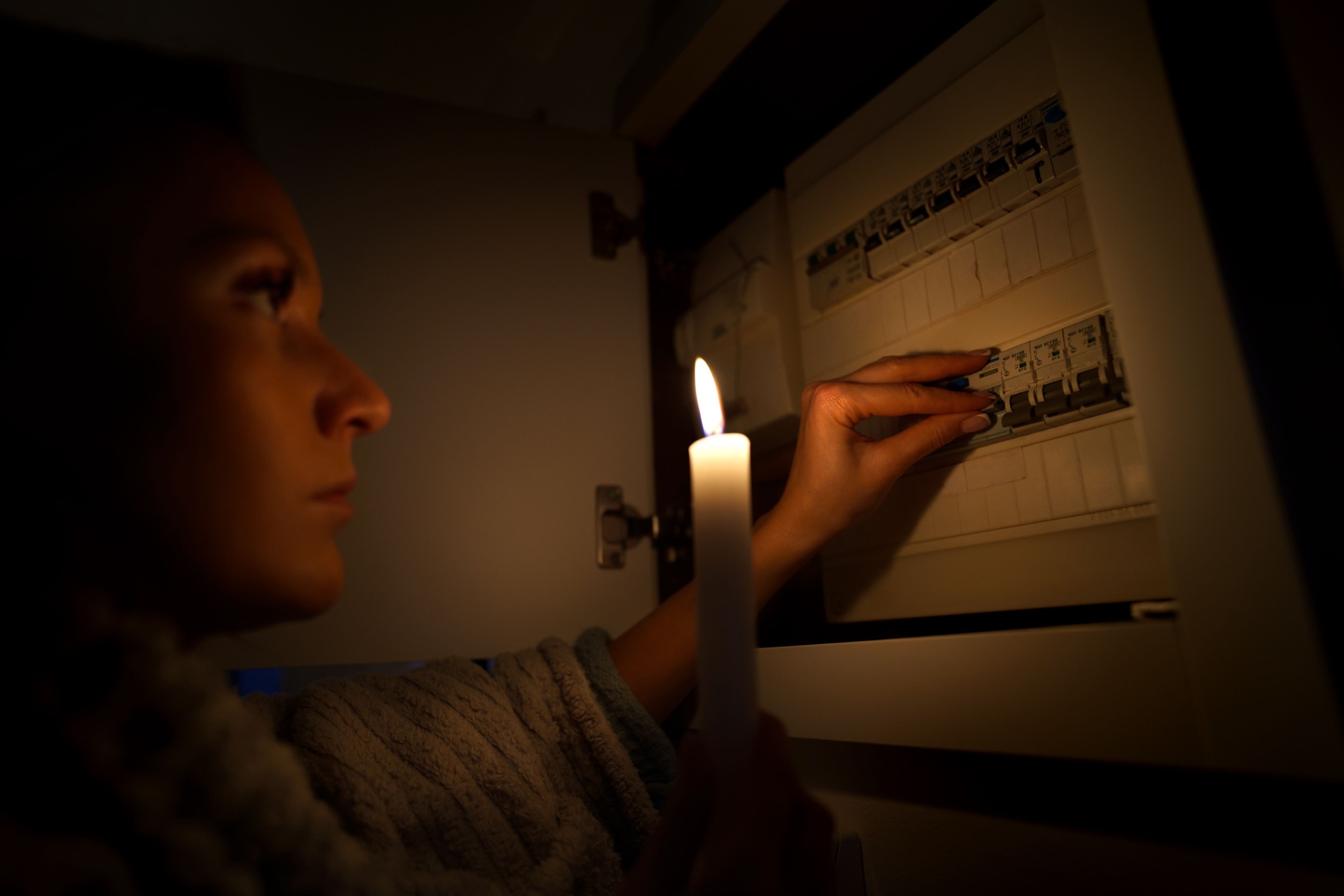
Power outages can strike without warning, leaving homes and businesses in the dark. Ever wondered why they happen or how to stay safe during one? Power outages occur due to various reasons like severe weather, equipment failure, or even wildlife interference. Knowing what to do when the lights go out can make a huge difference. From keeping flashlights handy to understanding how to protect your electronics, being prepared is key. This blog post will cover 37 facts about power outages that will help you stay informed and ready. Whether you're curious about the causes or looking for safety tips, we've got you covered.
Key Takeaways:
- Power outages can be caused by weather, fallen trees, animals, human error, equipment failure, and high demand, impacting communication, food, medical devices, and transportation.
- Being prepared for power outages is important. Create an emergency kit, consider backup power options, stay informed, plan ahead, protect electronics, and build a support network with neighbors.
What Causes Power Outages?
Power outages can disrupt daily life, but understanding their causes can help prepare for them. Here are some common reasons why the lights go out.
- Weather: Severe weather like thunderstorms, hurricanes, and snowstorms can damage power lines and equipment.
- Fallen Trees: Trees or branches falling on power lines can cause outages, especially during storms.
- Animals: Squirrels, birds, and other animals can interfere with electrical equipment, leading to power loss.
- Human Error: Accidents involving vehicles hitting power poles or construction mishaps can disrupt electricity.
- Equipment Failure: Aging or faulty equipment can break down, causing outages.
- High Demand: During extreme temperatures, high electricity demand can overload the system, leading to blackouts.
How Power Outages Affect Daily Life
Power outages can have a significant impact on various aspects of daily life. Here are some ways they can affect you.
- Communication: Without power, phones and internet services may be unavailable, making it hard to stay in touch.
- Food Spoilage: Refrigerators and freezers stop working, risking food spoilage.
- Heating and Cooling: HVAC systems shut down, making it difficult to maintain a comfortable temperature.
- Medical Devices: People relying on electric medical devices may face serious health risks.
- Water Supply: Electric pumps for wells and water systems may stop, affecting water availability.
- Transportation: Traffic lights and electric public transport systems can be disrupted, causing delays and accidents.
Interesting Facts About Power Outages
Power outages have some fascinating aspects that might surprise you. Here are a few intriguing facts.
- Longest Outage: The longest recorded power outage lasted 11 months in the Philippines after Typhoon Haiyan in 2013.
- First Blackout: The first major blackout in the U.S. occurred in 1965, affecting 30 million people in the Northeast.
- Animal Culprits: Squirrels are the most common animal cause of power outages in the U.S.
- Economic Impact: Power outages cost the U.S. economy an estimated $150 billion annually.
- Solar Flares: Solar storms can disrupt power grids by affecting the Earth's magnetic field.
- Backup Generators: Hospitals and critical facilities often have backup generators to ensure continuous power.
How to Prepare for Power Outages
Being prepared can make power outages less stressful. Here are some tips to help you get ready.
- Emergency Kit: Keep an emergency kit with flashlights, batteries, water, and non-perishable food.
- Backup Power: Consider investing in a generator or solar-powered charger for essential devices.
- Stay Informed: Sign up for alerts from your utility company to stay updated on outages and restoration efforts.
- Plan Ahead: Have a plan for medical needs, pet care, and communication during an outage.
- Protect Electronics: Use surge protectors to safeguard electronics from power surges when power is restored.
- Know Your Neighbors: Establish a support network with neighbors to help each other during outages.
Global Power Outages
Power outages happen worldwide, affecting millions of people. Here are some notable global outages.
- India 2012: The largest blackout in history occurred in India, affecting 620 million people.
- Brazil 2009: A massive outage left 60 million people in the dark due to a failure at the Itaipu Dam.
- Italy 2003: A blackout affected 56 million people in Italy and parts of Switzerland.
- Indonesia 2005: A power outage in Java and Bali affected 100 million people.
- Venezuela 2019: A major blackout affected the entire country for several days.
- Canada 1998: An ice storm caused widespread outages in Quebec, affecting 4 million people.
Fun Facts About Power Outages
Power outages can be interesting in unexpected ways. Here are some fun facts to lighten the mood.
- Candle Sales: Candle sales spike during power outages as people look for alternative lighting.
- Board Games: Many families turn to board games and storytelling during blackouts.
- Star Gazing: Without light pollution, power outages can offer a rare chance to see the night sky clearly.
- Silent Cities: Cities become eerily quiet without the hum of electricity and traffic.
- Creativity Boost: Some people find that power outages boost creativity, leading to more reading, writing, and drawing.
- Community Spirit: Power outages often bring communities together as neighbors help each other out.
- Historical Events: Some historical events, like the New York City blackout of 1977, have become cultural touchstones.
Power Outages: The Final Word
Power outages can disrupt daily life, but understanding them helps us prepare better. Knowing that weather events cause most outages, we can take steps to stay safe. Backup generators and emergency kits are essential for handling unexpected blackouts. Remember, power grids are complex systems, and even small issues can lead to widespread outages. Staying informed about local infrastructure and having a plan in place can make a big difference. Energy conservation and grid modernization are key to reducing the frequency of these events. By being proactive, we can minimize the impact of power outages on our lives. Stay prepared, stay safe, and keep these facts in mind to navigate through any blackout with confidence.
Frequently Asked Questions
Was this page helpful?
Our commitment to delivering trustworthy and engaging content is at the heart of what we do. Each fact on our site is contributed by real users like you, bringing a wealth of diverse insights and information. To ensure the highest standards of accuracy and reliability, our dedicated editors meticulously review each submission. This process guarantees that the facts we share are not only fascinating but also credible. Trust in our commitment to quality and authenticity as you explore and learn with us.


